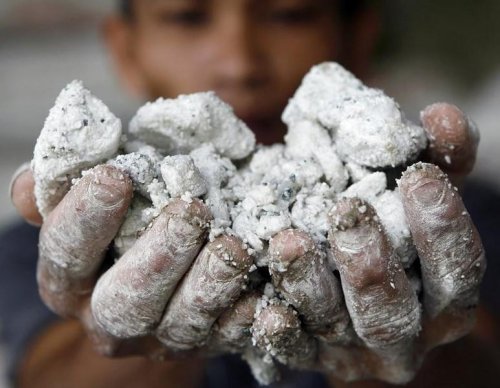
KWM | 14 Oct 2016
Philippine Government’s crackdown on nickel mining - Arbitration options for foreign investors
This article was written by Max Bonnell and Edwina Kwan.
The Philippines is the world’s top producer of nickel ore, supplying more nickel ore to China than any other country. However the viability of the Filipino nickel industry is currently in a state of flux following President Rodrigo Duterte’s national mining audit of the country’s forty metallic mines. The mining audit began soon after President Duterte’s election in July 2016 and has already resulted in the suspension of 10 nickel ore mines.
On 27 September 2016, President Duterte widened his crackdown on the nickel mining industry with a recommendation that a further twenty mines be suspended for failures to comply with environmental regulations. The actual or threatened suspensions now cover three-quarters of nickel mining operations in the Philippines, or around half the country’s nickel production in 2015. [1] Shipments of nickel ore are expected to shrink by more than 30% in 2016 as a result of President Duterte’s crackdown on the industry. [2]
These suspensions may seriously compromise foreign investment in an already-volatile industry. Despite its rich natural resources, the Philippines has been reluctant to grant new mining licences, and has taken few steps to clarify a complex and uncertain regulatory environment. [3] Nevertheless, a number of mining projects – some of which, including Australia’s OceanaGold, were marked for suspension in the recent audit – are owned wholly or in part by foreign investors.
In addition, a rise in the price of nickel (a key component of steel) or any slowdown in the Philippines mining industry will have knock-on consequences for importers. Chief among these is China, which in the first half of 2016 imported 95% of its nickel ore from the Philippines [4] and is now likely to have to import more nickel from other markets, such as Indonesia, as a result of the drop in nickel exports from the Philippines. [5] Producers of complementary products for the Filipino marked will also be affected: the Philippines accounts for 17% of Australia’s AU$27 billion METS (Mining Equipment, Technology and Services) exports. [6]
What are the options for foreign investors affected by the nickel mining crackdown?
Firstly, it is not yet known whether corporations named in the audit will be forced to cease operations. A spokesman for the Chamber of Mines has indicated that non-complying businesses will be given the opportunity to ‘respond to the findings and resolve the issues’. [7] OceanaGold, which was named in the audit, has confirmed that it had not yet received any formal order from the government and is still operating as normal. [8] However it remains to be seen what further measures the government may take.
Whether investors have legal recourse against Duterte’s government for any decrease in the value of their investments as a result of the mining audit will depend on whether the government has breached any specific contractual agreements, or any other broad protections offered to foreign investors as a result of any investment treaties entered into by the Philippines. The legislative framework – principally the Constitution of the Philippines, [9] the Mining Act 1995 (RA No. 7492), [10] and Executive Order 79 (2012) [11] – impose strict requirements on holders of mining licences and endow the Government with broad powers to enforce compliance.
However, depending on the nature and circumstances of the suspensions, the measures taken by the Philippine government may be subject to challenge by foreign investors under Bilateral Investment Treaties (BITs) or Treaties with Investment Provisions (TIPs) signed between the Philippines and foreign states whose companies have been threatened with suspension under the mining audit. These treaties – all of which contain Investor-State Dispute Settlement (ISDS) provisions granting foreign investors certain protections over their investments in the Philippines – include:
– Australia-Philippines BIT (1995);
– Canada-Philippines BIT (1996);
– China-Philippines BIT (1995); and
– Japan-Philippines Economic Partnership Agreement (2008).
ISDS provisions may provide an avenue for foreign investors to challenge the Philippine government’s suspension of mining licences pursuant to the protections offered to foreign investors under the BITs and TIPs. This may require the payment of adequate compensation to foreign investors in the event that their investment in the nickel industry is not accorded fair and equitable treatment, is subject to arbitrary and unreasonable measures, is contrary to any legitimate expectations held by the foreign investor, or is deemed to have been expropriated as a result of the measures taken by the Philippine government in the nickel mining audit.
Footnotes:
[1] https://www.ft.com/content/9f9e5356849c11e6a29c6e7d9515ad15, http://www.wsj.com/articles/philippineswidensminingcrackdownboostingnickelprices1474979096
[2] http://www.bloomberg.com/news/articles/2016-09-04/philippine-nickel-ore-exports-may-drop-30-top-miner-forecasts
[3] http://www.austrade.gov.au/australian/export/export-markets/countries/philippines/industries/mining
[5] http://www.bloomberg.com/news/articles/2016-09-04/philippine-nickel-ore-exports-may-drop-30-top-miner-forecasts
[8] P Ker (2016) ‘Miners left reeling as Philippines suspend three-quarters of mines’ Australian Financial Review, 28 September, via Westlaw/Thompson Reuters


